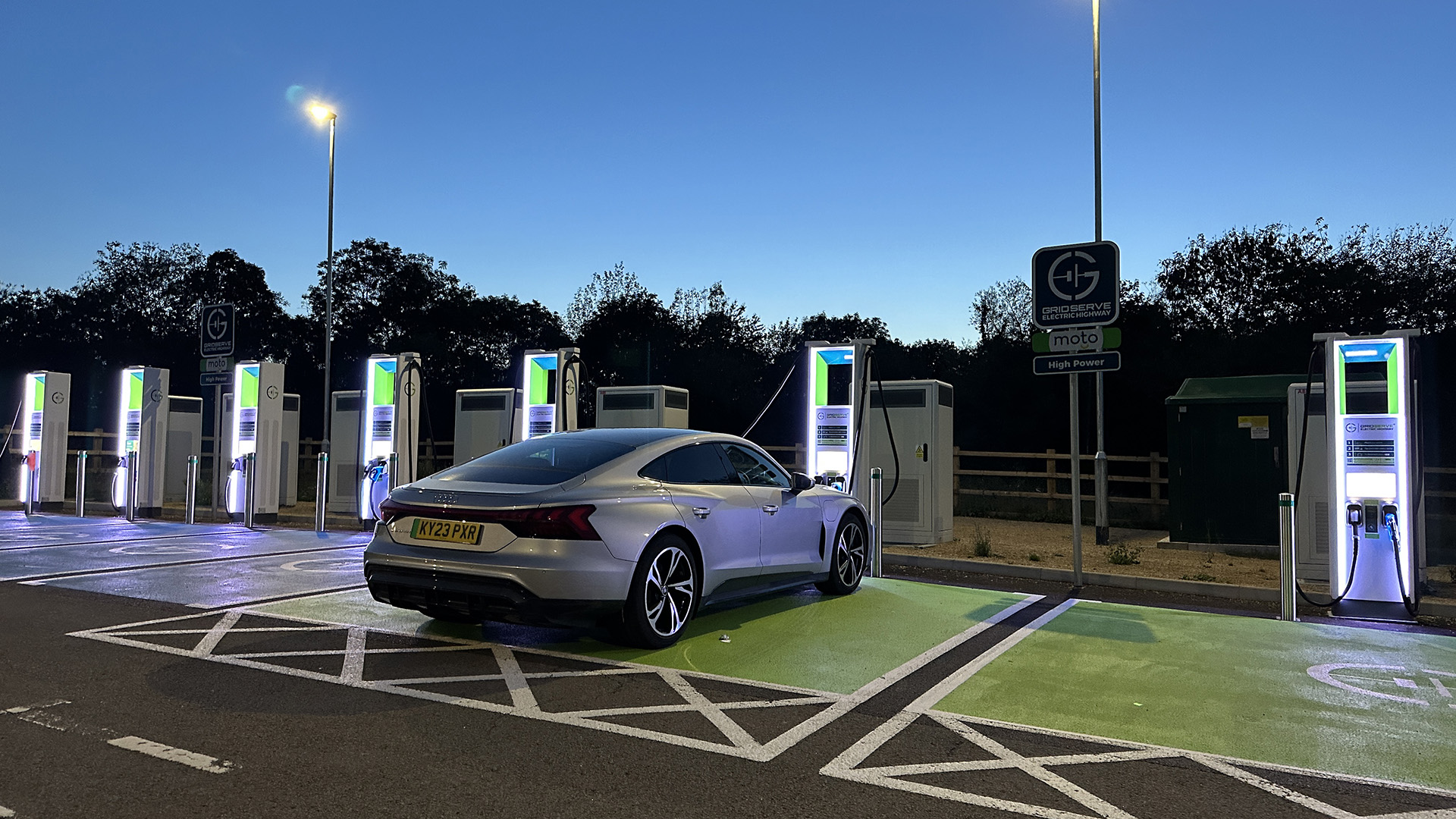

Range is one of the key features that is mentioned with the launch of any EV. I know it’s something I’m guilty of too – it's the first thing I look for in the spec sheet. But with most new electric models now sporting over 300 miles of range, and fast chargers becoming more prevalent, range isn’t a problem for most people.
If you are planning to buy an electric car, you need a home charger – or at least a wall socket you can plug your car into. If you have this – unlike with an ICE car – you’ll be starting every journey at 100%. That means that if you’re driving less than, say, 200 miles before you get home, you’ll never have to use a public charger.
If you think about the day-to-day journeys you do in your car, that probably covers most of them. It’s only for those long-distance trips where you’ll need to plan in charging stops. I’m currently driving the Audi e-tron GT, which has a total range of around 260 miles, or nearer 200 on a cold day. Even then, range isn’t an issue, as I know that most motorway services have fast chargers – there’s a sea of Gridserve and Ionity chargers from Bath to London.

The Audi e-tron GT's dash gives efficiency in miles per kW
With the range issue practically solved then, it’s time to look at a different metric. With petrol and diesel cars we talk about efficiency and that’s something that is now more important with EVs. Charging your car has become more expensive, both at home and at fast chargers – though still not as expensive as petrol – so how far each kW of charge will get you, becomes the bigger question than range.
After all, a bigger battery might get you further on a single charge, but it will cost you more to charge it each time. Plus, if two EVs offer the same range but one has a smaller battery, it will be cheaper to run.
For ICE cars the common measurement, at least in the UK and US, is miles per gallon (MPG). However, for EVs, manufacturers are yet to all agree to a single metric. Some will use a European kWh per 100km (or 62 miles), while others use a more familiar miles per kWh. There’s even an eMPG mostly in the US, that works out an equivalent to ICE cars. This is handy for comparing EVs to ICE but probably less useful once you’re comparing EV to EV.
For the UK, I’m fairly confident that the miles per kWh (mi/kWh) will prevail as the metric of choice. It’s something that more manufacturers are quoting now, and it’s something that the dashboard of the Audi e-Tron GT shows me throughout the journey.
Sign up to the T3 newsletter for smarter living straight to your inbox
Get all the latest news, reviews, deals and buying guides on gorgeous tech, home and active products from the T3 experts
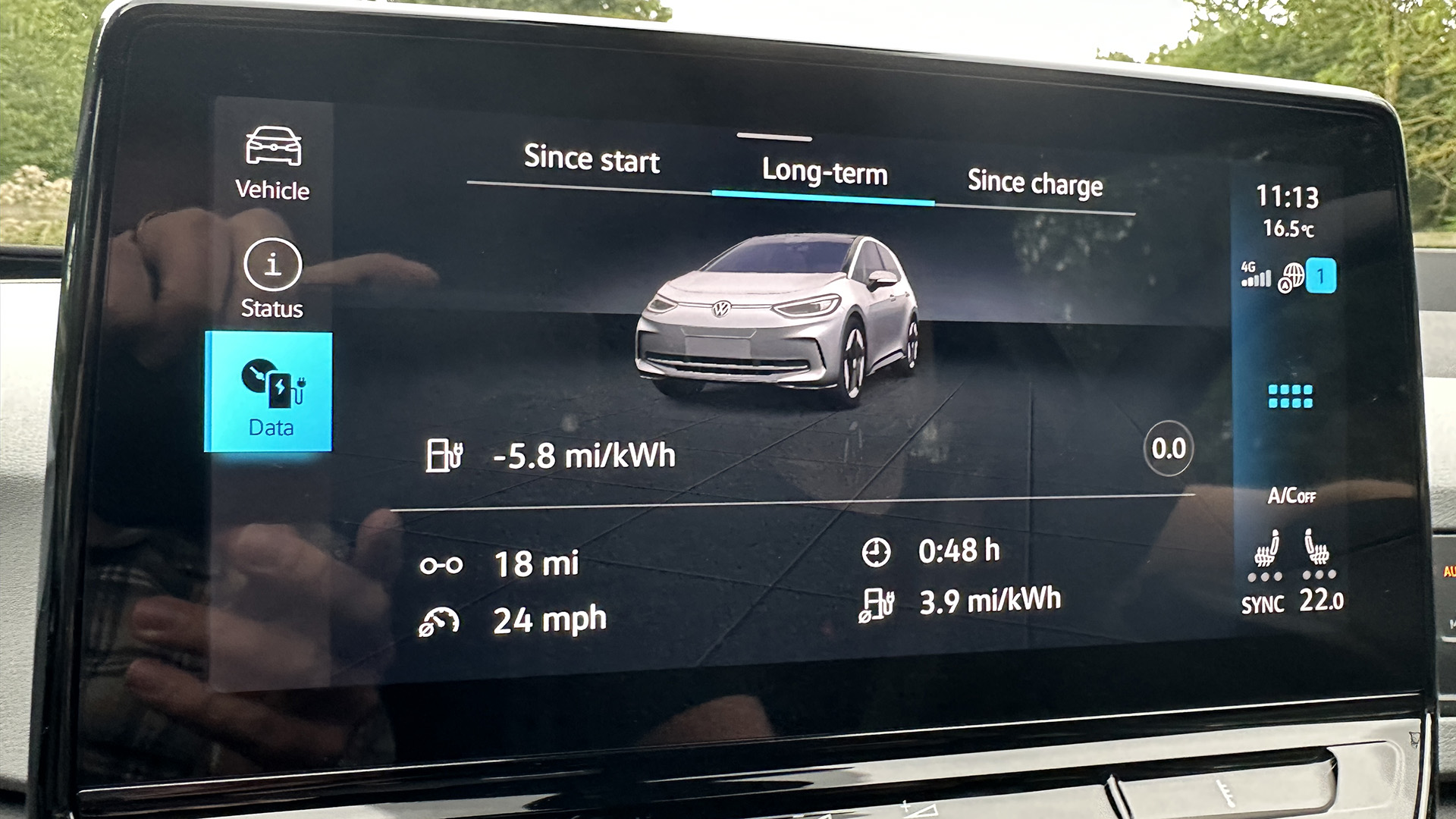
VW also uses mi/kWh in the UK and this ID.3 shows the advantage of a smaller car
With this measurement – as with MPG – the more miles you get per kWh, the less it will cost you to do per journey. And if you’re paying £0.69 per kWh or more at a fast charger, that’s good to know. What makes a good Mi/kW value will depend on the type of EV you have. A long range, aerodynamic SUV will have better numbers than a high-performance model.
The average for efficient EVs right now is between 3 and 4 miles per kWh. The Audi e-tron GT gets far less than this, usually around 2 miles per kW in the city and 3 miles per kW on the motorway. But just as you wouldn’t expect a V6 sports car to give you 40MPG, you can’t expect a sporty EV to deliver performance and efficiency. I recently drove a Maserati sports car that when I put my foot down, it drank fuel so fast that I watched the needle drop before my eyes.
Just as you’d struggle to find a high-performance ICE car that would give you more than 250 miles on a full tank, sporty EVs will always have shorter ranges. It takes lots more kW to shift an EV quickly.
As range figures on EVs start to plateau and drivers gain confidence in the availability of charging, mpkWh will become a bigger deal. My advice is before you buy an EV, look at the efficiency numbers, especially if you really want to save yourself money.
As T3's Editor-in-Chief, Mat Gallagher has his finger on the pulse for the latest advances in technology. He has written about technology since 2003 and after stints in Beijing, Hong Kong and Chicago is now based in the UK. He’s a true lover of gadgets, but especially anything that involves cameras, Apple, electric cars, musical instruments or travel.
-
 Hyundai goes after Renault 5 Turbo with wild Insteroid concept
Hyundai goes after Renault 5 Turbo with wild Insteroid conceptElectric cars are boring? Not on Hyundai’s watch, they aren’t
By Alistair Charlton
-
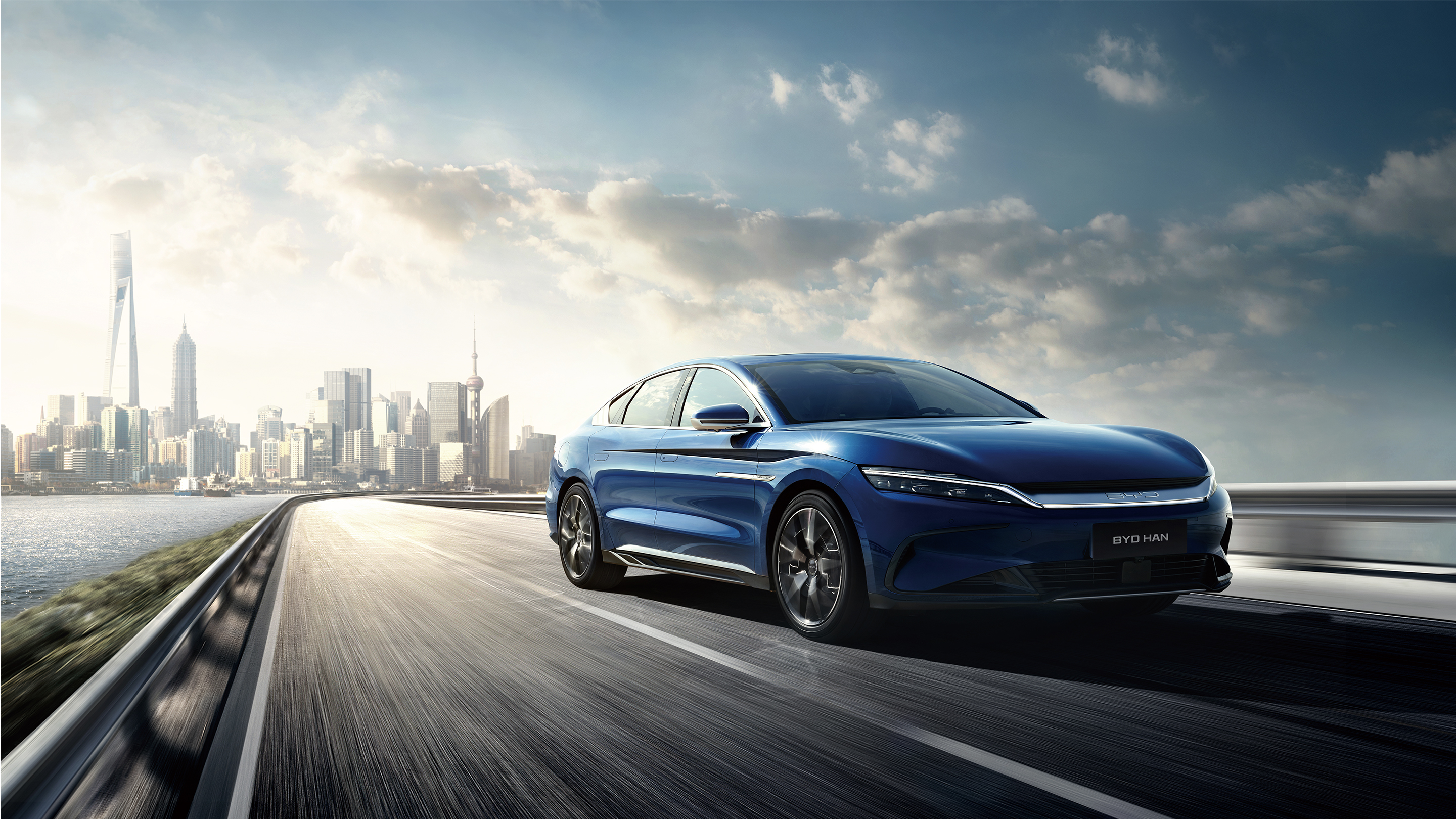 This new EV charger can charge as quickly as filling with petrol at the pump
This new EV charger can charge as quickly as filling with petrol at the pumpBYD's super e-Platform EV charger promises 1,000 kW charging at 1,000 volts
By Alistair Charlton
-
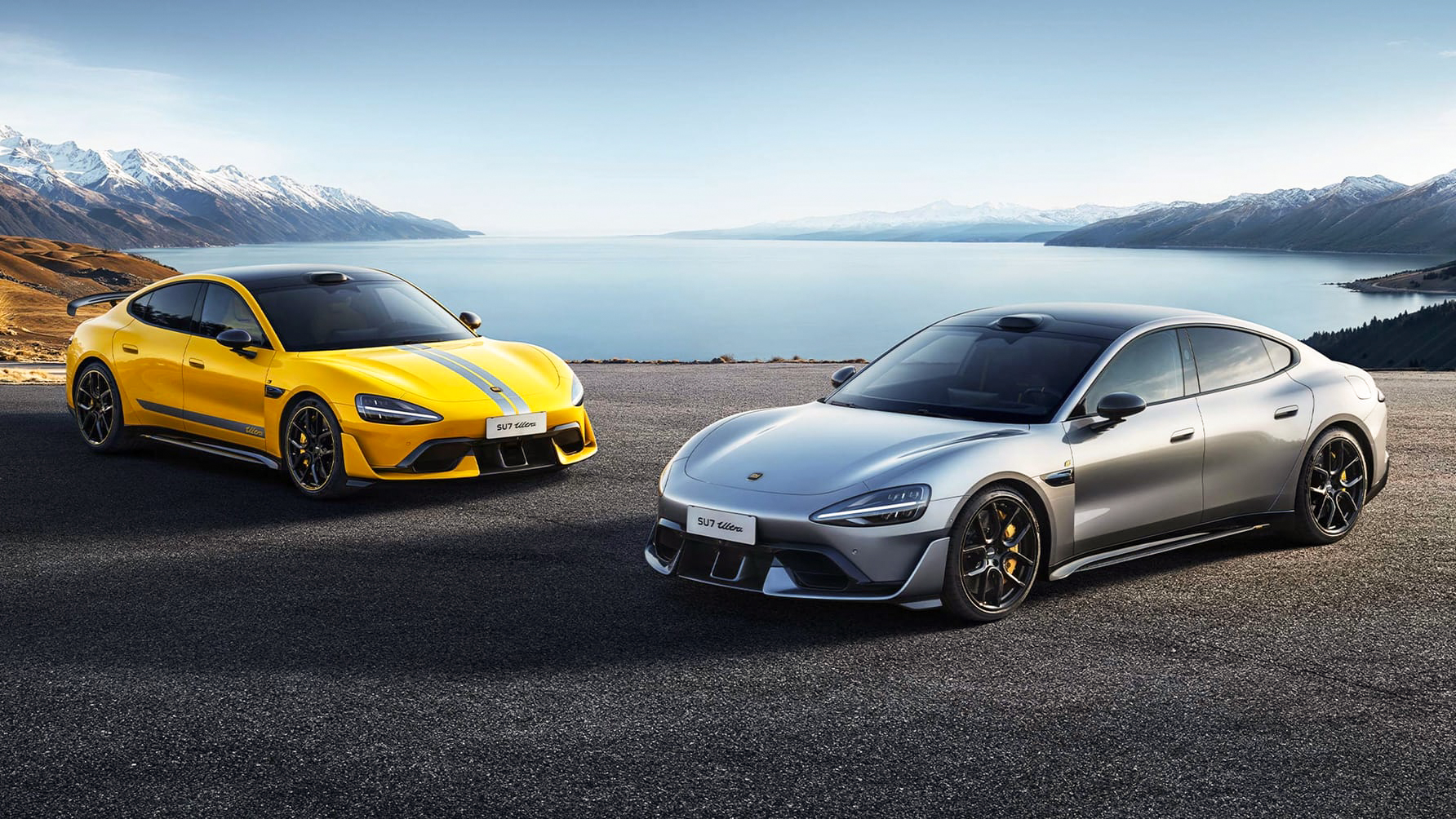 Xiaomi just revealed one of the most interesting EVs of the year
Xiaomi just revealed one of the most interesting EVs of the yearThe Xiaomi SU7 Ultra is a Chinese EV ready to take on Porsche and Tesla
By Alistair Charlton
-
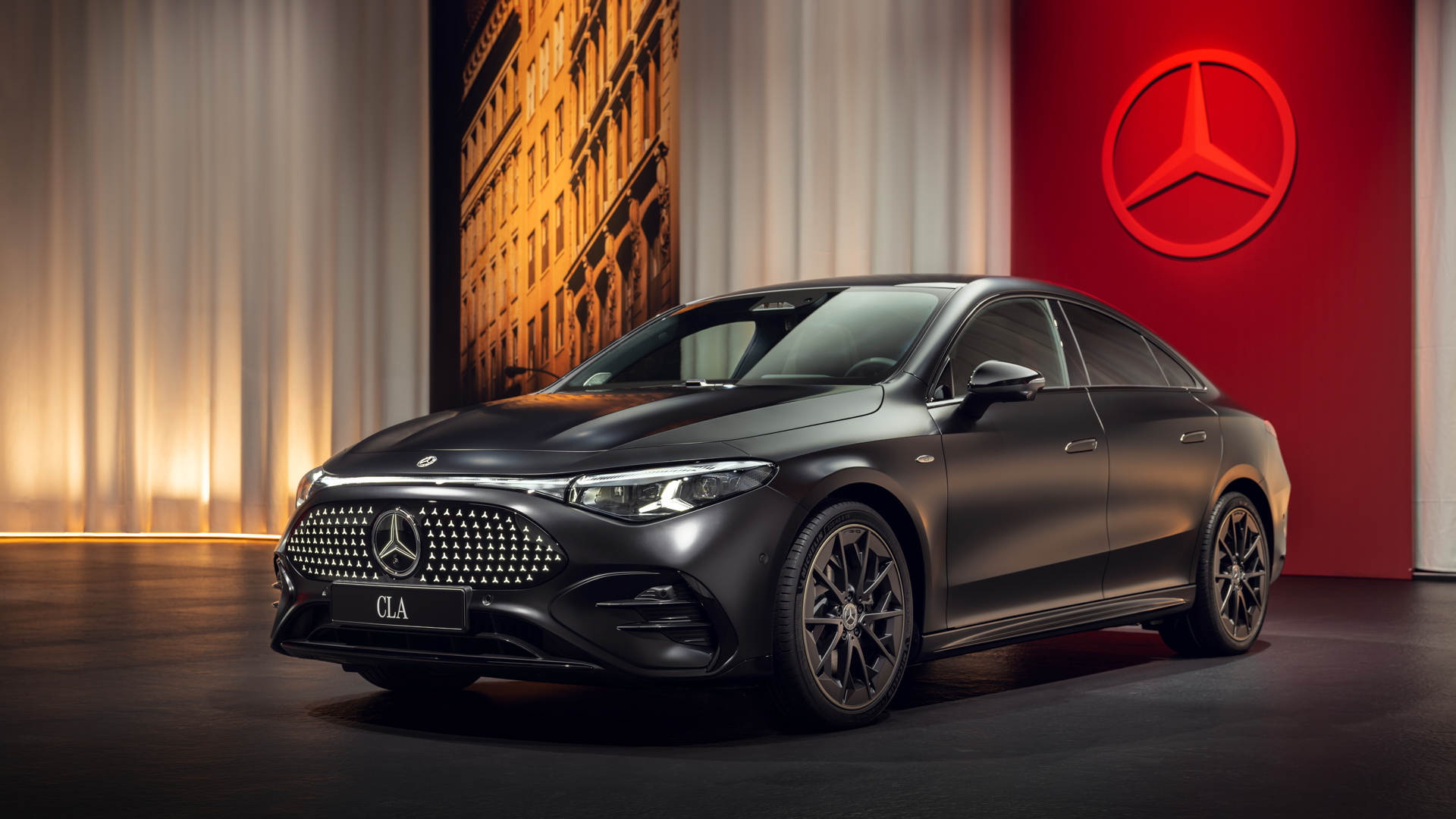 The all-new Mercedes-Benz CLA has AI so smart it wants to be your friend
The all-new Mercedes-Benz CLA has AI so smart it wants to be your friendMercedes’ second generation of electric cars has landed and it's a technology tour de force
By Alistair Charlton
-
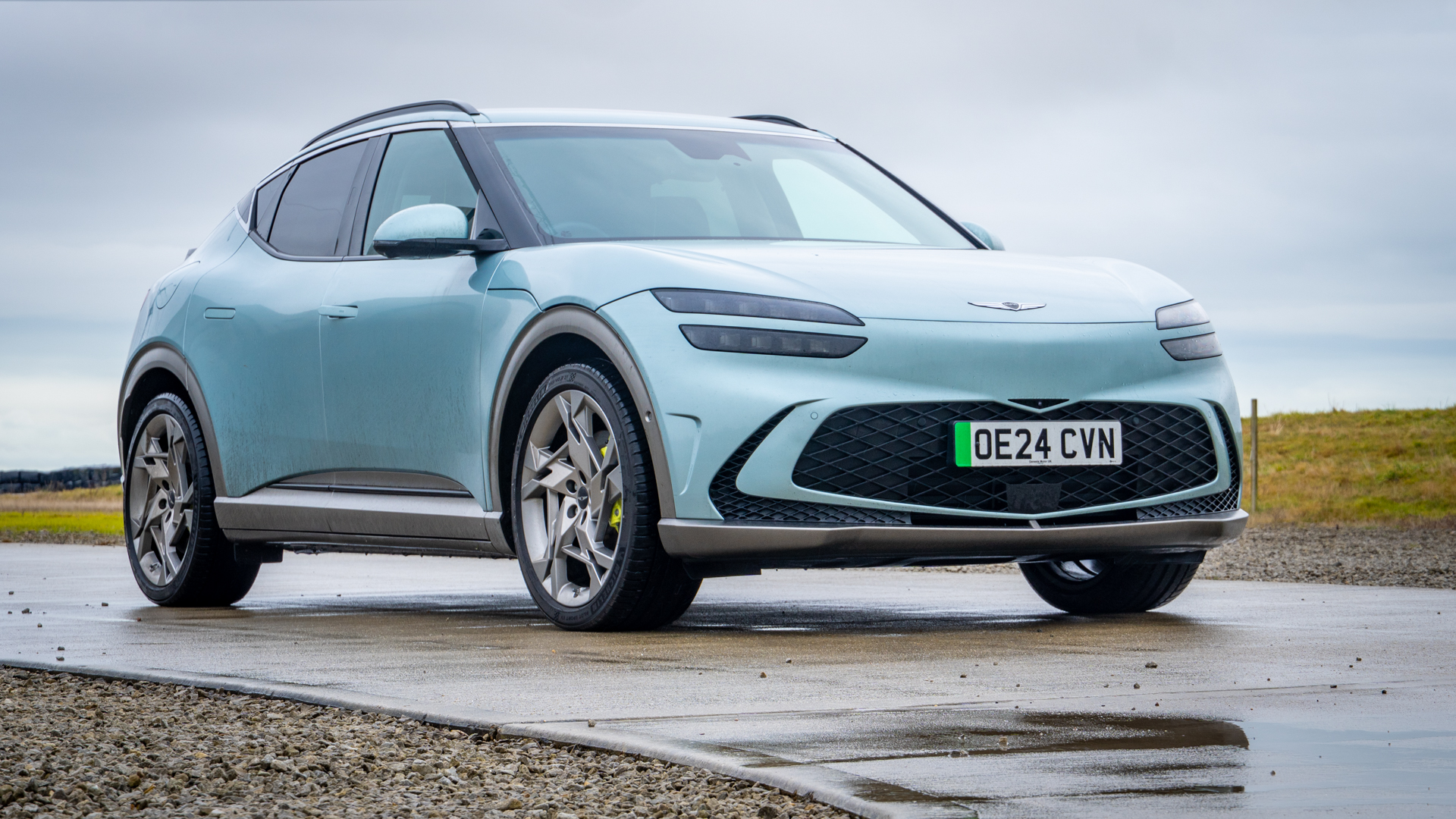 12 things I learnt driving this electric car for six months
12 things I learnt driving this electric car for six monthsHere’s what happened during six months and 4,000 miles with a Genesis GV60
By Alistair Charlton
-
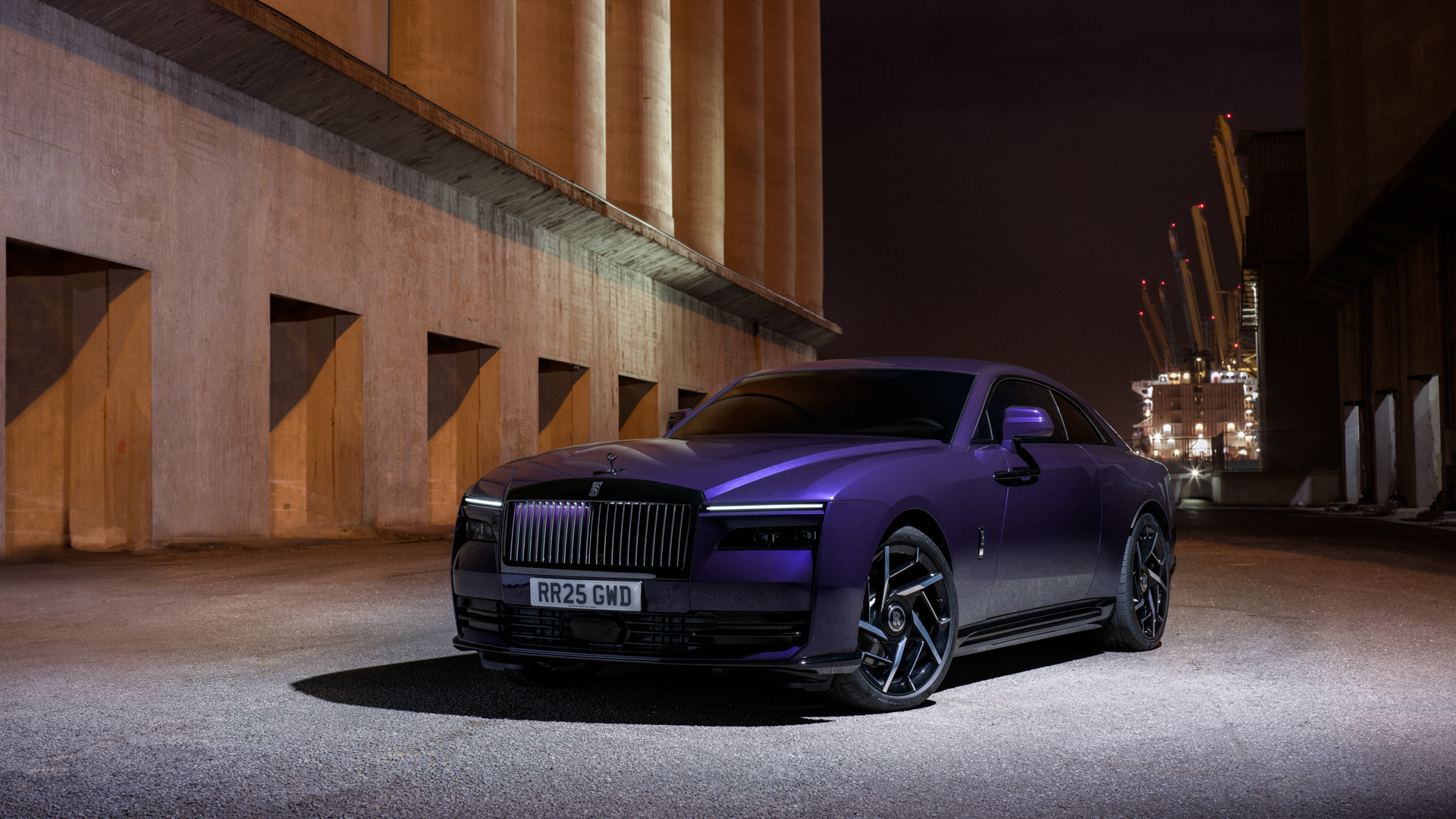 Rolls-Royce gives the electric Spectre a high-performance upgrade
Rolls-Royce gives the electric Spectre a high-performance upgradeThe new Black Badge Spectre is the most powerful Rolls-Royce ever
By Alistair Charlton
-
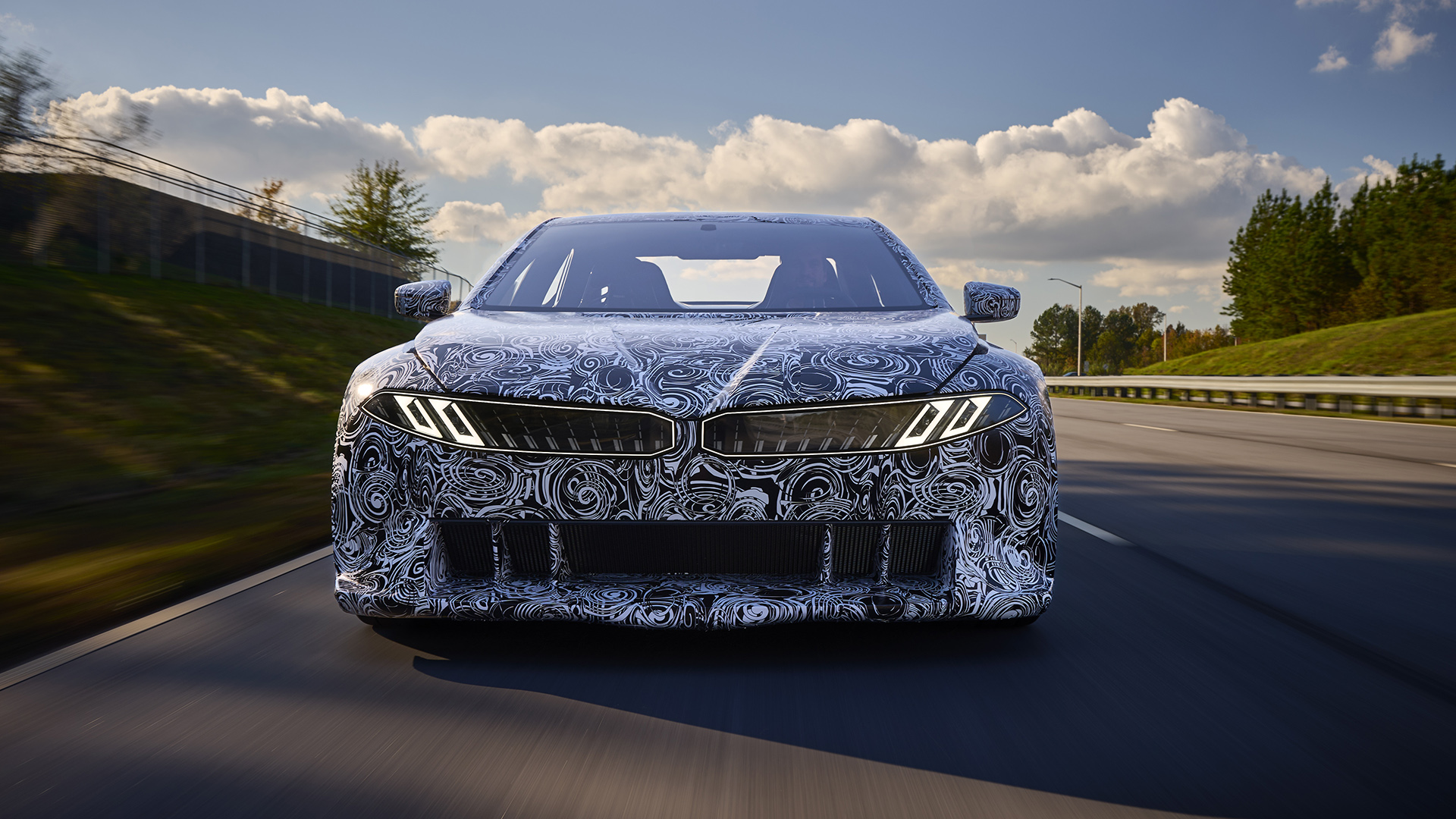 Forget Tesla, this is the most powerful EV I’ve tried by miles
Forget Tesla, this is the most powerful EV I’ve tried by milesThe BMW Vision Driving experience shows just how powerful EVs of the future could be
By Mat Gallagher
-
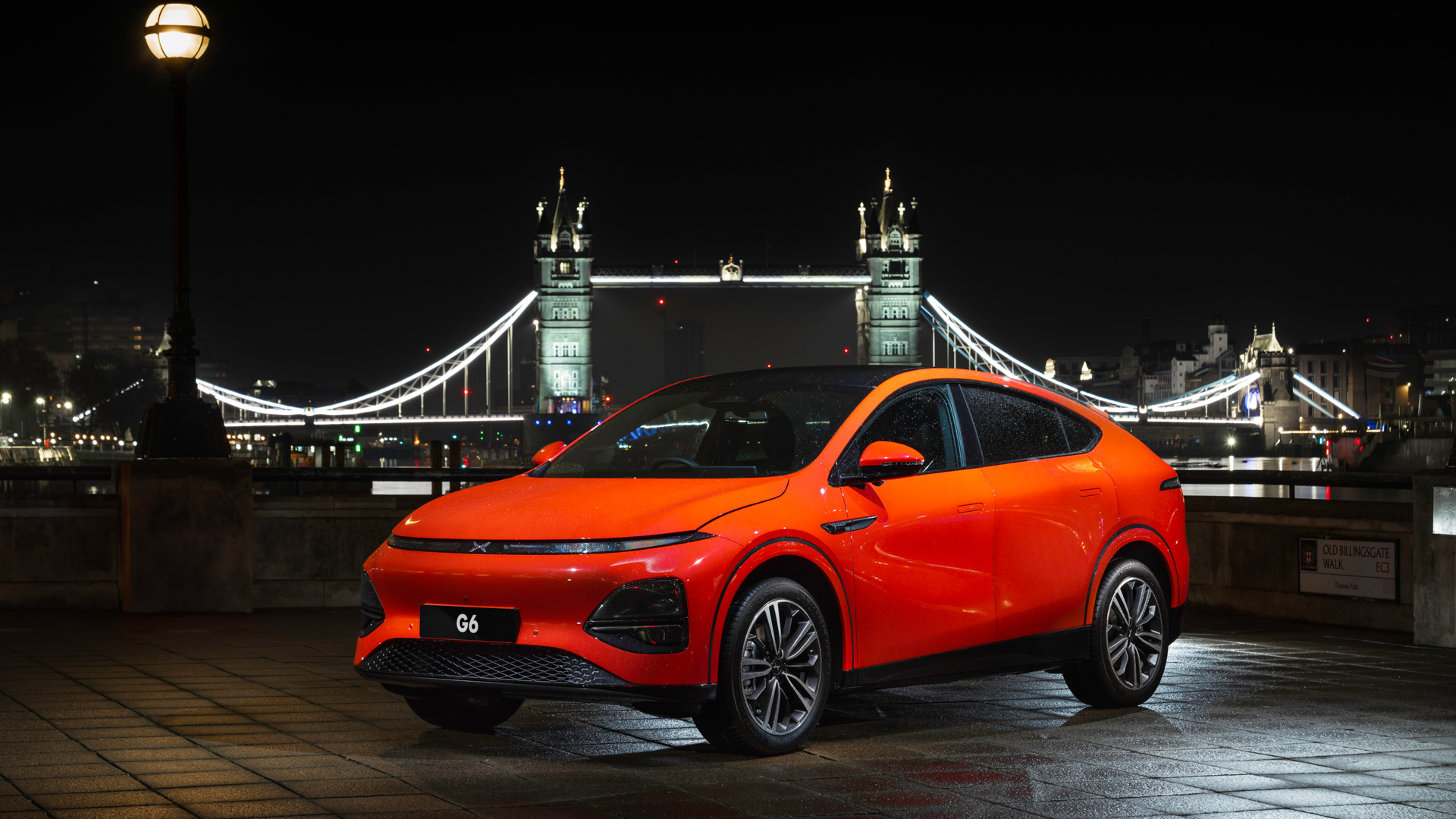 Still want that Tesla Model Y? Xpeng lands in UK with electric G6
Still want that Tesla Model Y? Xpeng lands in UK with electric G6Chinese Tesla rival Xpeng has launched in the UK with the £39,990 G6 SUV
By Alistair Charlton

